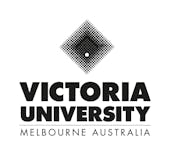Jon completed his undergraduate degree in Science and Soccer at Liverpool John Moores University in 2008. Jon gradually developed a passion for understanding how skeletal muscle adapts to training and how diet modulates these responses. As such, Jon studied for a PhD at Liverpool John Moores University with a focus on the exercise-induced cell signalling responses of human skeletal muscle with a special emphasis on the effects of training with low carbohydrate availability. During this period, Jon also had a passion for working in soccer, and was fortunate to work as a Sport Scientist with Liverpool FC for 18 months during his PhD. Upon finishing with LFC, Jon began working as a Sport Scientist for the England National Soccer teams providing Sport Science support to various National teams on camp and at major tournaments. Once Jon finished his PhD in 2012, he joined the England National set up as a full time lead Sport Scientist in a dual role with Liverpool John Moores University as a post-doctoral researcher. During this time, Jon was able to combine his research interests understanding training adaptation alongside his role where he was charged with the responsibility of implementing an evidence-based Sport Science support strategy for the England National teams. Jon has now taken up a full-time post (March 2014) with Victoria University in Melbourne as a Sport Science Research Fellow that will see Jon continue researching similar avenues of understanding training adaptation, whilst working as the Sport Scientist for the Western Bulldogs FC, where Jon will focus on delivering a forward thinking, contemporary and innovative Sport Science programme that ultimately aims to enhance athletic performance. Jon has so published in the area of training adaptations with a special emphasis on how carbohydrate manipulates a certain training response.
Experience
-
–presentSport Science Research Fellow, Victoria University
-
–presentSport Scientist, Western Bulldogs FC
Education
-
2013Liverpool John Moores University, LTHE PGCert
-
2012Liverpool John Moores University, PhD
-
2008Liverpool John Moores University, BSc. Hons
Publications
-
2015Acute simulated soccer-specific training increases PGC-1α mRNA expression in human skeletal muscle, Journal of Sport Science
-
2014The emerging role of p53 in exercise metabolism., Sports Med
-
2014Carbohydrate availability and exercise training adaptation: Too much of a good thing? , European Journal of Sport Sciences
-
2014Leucine enriched protein feeding does not impair free fatty acid availability or exercise-induced lipid oxidation: beneficial implications for training in carbohydrate restricted states, Amino Acids
-
2013PGC-1a transcriptional response and mitochondrial adaptation to acute exercise is maintained in skeletal muscle of sedentary elderly males. , Biogerontology
-
2013Protein ingestion does not impair exercise-induced AMPK signalling when in a glycogen depleted state: implications for train-low compete high., European Journal of Applied Physiology
-
2013p53: the tumour suppressor turns mitochondrial regulator, Journal of Physiology
-
2013Reduced carbohydrate availability enhances exercise-induced p53 signalling in human skeletal muscle: potential mechanisms for train low - compete high, American Journal of Physiology
-
2012Matched work high-intensity interval and continuous running induce similar increases in PGC-1 α mRNA, AMPK, p38, and p53 phosphorylation in human skeletal muscle, Journal of Applied Physiology
-
2011High-intensity interval running is perceived as more enjoyable than moderate-intensity continuous exercise: implications for exercise compliance, Journal of Sport Science
-
2009Reduced carbohydrate availability does not modulate training-induced heat shock protein adaptations but does up-regulate oxidative enzyme activity in human skeletal muscle, Journal of Applied Physiology
-
2009Exercise training independent of carbohydrate availability reduces the plasma IL-6 response to acute exercise, Applied Physiology, Nutrition and Metabolism
- Melbourne, Australia
- @JonBartlett66
- Article Feed
- Jon.Bartlett@vu.edu.au
- ORCID
- Joined


